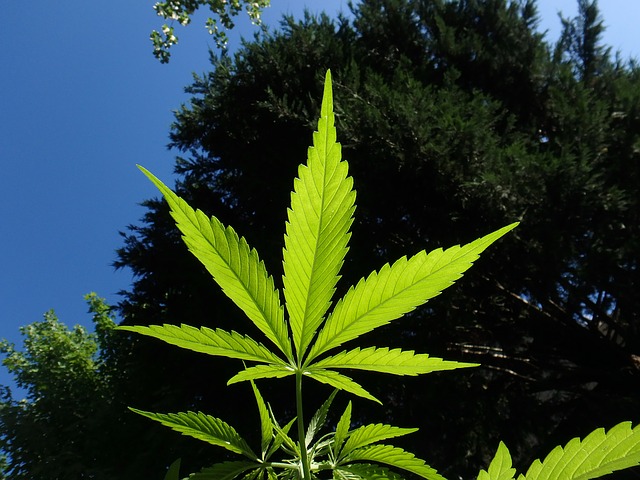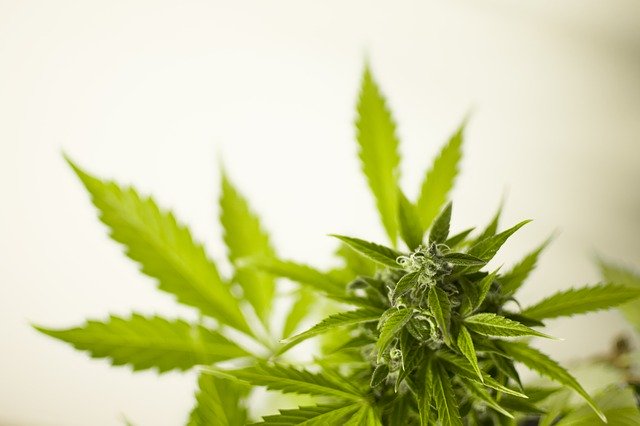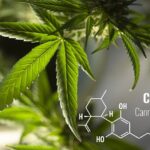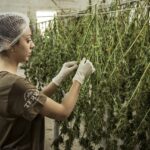CBD Isolate vs. full-spectrum CBD. What are their differences? Undoubtedly, CBD is getting more and more popular every day. Today, not only small independent brands sell CBD, but big cosmetic and food brands are starting to include CBD in their products. The reason for the increased popularity of cannabidiol is that this substance has many beneficial effects for us, with no risks and little side effects.
Despite its rising popularity, many individuals are concerned about CBD. Some people think that using CBD is the same as using marijuana. Others believe that CBD may show up in drug tests. And other individuals think that using CBD is illegal. If you are not using CBD for one of these reasons, you shouldn’t be afraid. CBD is not the same as marijuana, so it won’t get you high or show up in drug tests. On the other hand, CBD isolate products are extracted from hemp, which is legal at the federal level. So, using CBD isolate products won’t cause you any legal troubles. However, full-spectrum and isolate CBD are different things. So, before making a purchase decision, you should understand the difference between isolate vs. full-spectrum CBD.
What Is CBD?
The difference between isolate vs. full-spectrum CBD can’t be explained without understanding what CBD is first. As you may already know, if you are a reader of our blog, CBD is short for cannabidiol, one of the main compounds of the cannabis plant. But this must not be mistaken with THC (tetrahydrocannabinol), cannabis’ other primary compound. Both CBD and THC are phytocannabinoids, meaning that they are cannabinoids that are present in plants and herbs.
But, what does cannabinoid mean? All mammals, including humans, have a so-called endocannabinoid system, which is located in the brain and throughout the whole body. The endocannabinoid system is full of cannabinoid receptors, which are in charge of synthesizing endocannabinoids (produced by the human system), synthetic cannabinoids (produced in laboratories), or phytocannabinoids (present in the cannabis plant).
The endocannabinoid system is in charge of many processes, including appetite stimulation, pain sensation, relaxation, etc. Both CBD and THC act upon the cannabinoid receptors to stimulate the endocannabinoid system.
Popular CBD Formats
You can find CBD under different formats in the market, the most popular are:
- CBD oils, which are used orally by placing a few drops under the tongue.
- Creams and gels that are applied topically.
- Edibles and gummies.
- CBD liquids to vape.
Most of the above products come in different sizes and strengths, so you can choose the one that better suits your preference.
On the other hand, when shopping for CBD you might have encountered another distinction: isolate vs. full-spectrum CBD products. What do these terms refer to? We’ll clarify this question below.
How Is CBD Extracted?
To manufacture CBD products, cannabidiol is extracted from the hemp or cannabis plant using different methods:
- CO2 extraction. This method uses CO2 under high pressure and very low temperature to extract the cannabidiol from the plant.
- Ethanol can be used to extract CBD and to produce quality CBD oil and liquid products.
- Olive oil is also used to extract CBD from the plant by infusion.
The main difference between isolate vs. full-spectrum CBD is the composition of the resulting product. Let’s learn the difference between both products below:
What Is Isolate CBD?
Isolate CBD products contain only CBD. To make isolate CBD, the other compounds of the plant, including TCH, terpenes, and flavonoids are removed. As a result, isolate CBD products contain the purest form of cannabidiol. Typically, isolate CBD is extracted from hemp, which contains low or no THC at all.
Although the other compounds of cannabis have beneficial properties, using CBD isolate products will guarantee that no THC traces are contained in the product.
What Is Full-Spectrum CBD?
Contrary to isolate CBD, full-spectrum CBD contains all cannabis active compounds, including THC. Although many individuals prefer this type of product, due to its properties, there’s a risk that the THC content goes above the legal minimum.
Typically, full-spectrum CBD is extracted from the cannabis plant and contains flavonoids, terpenes, plant material, and other plant material.

Isolate Vs. Full-Spectrum CBD: What to Choose?
Choosing one type over the other will depend on what you are looking for and your situation. So, let’s see some considerations below:
- Isolate CBD won’t get you high, since it doesn’t contain THC
- Using isolate CBD products won’t trigger a false positive for THC in drug screening tests
- CBD isolate products are believed to work better at a certain dosage, so going above or below the dosage won’t impact the effects. Conversely, full-spectrum CBD will increase or decrease its effects depending on the dosage
- Isolate CBD is recommended for people who have a sensitivity to THC
- Whilst CBD isolates are flavorless and odorless, full-spectrum CBD may have a strong odor, the flavor that can be deceiving to some people
- Full-spectrum CBD can be illegal in some places
- Isolate CBD has little to no side effects, while full-spectrum CBD may provoke unpleasant effects in some individuals
Although full-spectrum CBD is believed to have more properties, it won’t be recommended for people who have to undergo drug tests, don’t want to experience any psychoactive properties, or live in places where THC is illegal.
Where to Buy CBD?
Today, you can easily find CBD products in the market. You can find CBD online and in headshops. So, if you are considering using CBD, make sure that you choose the product that is right for you.
Finally, if you are going to purchase CBD online, make sure that you buy it from a legit vendor. So, pay attention to the following questions:
- Does the site look professional?
- Do they have any contact methods?
- Do they have a returns policy?
Additionally, you should look for online reviews and see what others say about the vendor before you buy it.



